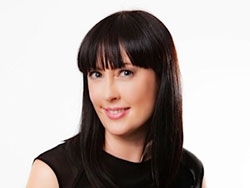About 8,000 Australian physiotherapists are tapping into an app to provide consultations remotely to around 300,000 patients.
The
Physitrack app, endorsed by the
Australian Physiotherapy Association (APA), enables physiotherapists to use telehealth for secure video consultations and live exercise demonstrations.
Subscribe for FREE to the HealthTimes magazine
The app features exercise prescription for patients with more than 3,500 exercise videos, exercise templates, educational content, records patient adherence and pain levels, and provides patient reminders, as well as outcome reports for WorkCover and TAC claims.
While Aussie practitioners have embraced the app, which is used by a total of 22,000 practitioners in 102 countries across the world, the APA argues the app is another telehealth success story that highlights the need for government and private health insurers to reimburse patient costs for telehealth consultations and treatments.
New South Wales senior physiotherapist Jack O’Brien, CEO of
Terrace Physio Plus and an APA member, has been using the app to treat a 45-year-old female patient with knee osteoarthritis, about 1,000 kilometres away, in country Victoria.
“The patient had specifically requested to see myself after my profile grew through our clinic's use of social media and helpful content across our digital platforms,” he said.
“She felt like she knew us, liked us and trusted us, despite prior negative experiences with health professionals, she wanted to explore telehealth.
“This patient was our first foray into telehealth and remote consulting using Physitrack, and the patient has been in our care for almost six months, with great outcomes.”
Through the free patient-end app, PhysiApp, the patient messages and conducts video calls with Mr O’Brien, watches the exercise videos, reports back on her progress, and reads education articles that have been assigned to her.
Mr O’Brien said the app enables secure calls, linked to the patient’s file within the app, which is synced to the practice’s management software, Cliniko.
With Mr O’Brien’s clinical expertise coupled with technology, the consultations, treatment and education have delivered increased independence and self-management of chronic pain and chronic disease issues for the patient.
“The patient has had degenerative tendons resolve completely, decreased non-specific low back pain, increased fitness capacity and independence with ADLs,” he said.
While the patient, who recently also had bowel surgery, applauded the app for keeping her connected to Mr O’Brien and improving her exercise compliance and health outcomes, she said consultation costs are “a big burden”.
“I am currently seeking reimbursement from Medicare under the EPC program,” she said.
“That has been very difficult, as my GP needed to confirm the criteria for EPC, refer me to a physio who wasn't in the area, claim via Medicare, etc. I haven’t been able to see Jack as often as he would like, due to the costs.
“However, I have saved in decreased travel costs and time lost to travel. I have also decreased some of my pain medication, and I have been able to begin doing some of the things that I love.”
The patient said she now hopes to return to work soon, and credited telehealth physiotherapy for her improved health outcomes.
“I would never have been able to access someone like Jack without it, and it is changing and improving my life. I am so thankful.”
Mr O’Brien said it’s vital patients are able to receive rebates for telehealth consultations.
“Remote and rural patients struggle with access to services, and even more so with choice to services,” he said.
“Consulting via telehealth really is no different to in-person consulting - it will deliver comparable outcomes, and will limit further health problems in the future. Therefore, it’s an obvious investment in patient wellbeing.”













